Unlock your genetic potential or gift the power of personalized health. Browse our Supersaver Packs now.
Learning about your roots beyond your great-grandparents can bring you peace, help you understand where you came from, and allow you to take your place in the world. It can give you a sense of purpose, helping track down your current living relatives that you probably didn’t know you had. Ancestry testing can help you learn much about your roots and culture. African Ancestry Inc. offers these test reports specifically for people of African descent. Here’s what you need to know about them in 2024.
In 2003, Dr. Rick Kittles and Gina Paige founded African Ancestry Inc. in Silver Spring, Maryland.
African Ancestry is the world leader in ancestry tracing for people of African descent.
Using the world’s largest database of African DNA (with over 33,000 DNA samples), the company has helped over 7,50,000 people trace their roots, ethnicity, and family trees.
Unlike 23andMe, which offers health reports alongside ancestry reports, African Ancestry’s sole purpose is to help people find their roots.
The company helps trace your maternal and paternal lineages.
There are several online reviews of African Ancestry and their DNA tests.
African Ancestry offers three test kits: the MatriClan Test Kit, the PatriClan Test Kit, and the Family Celebration package.
They do not use the admixture analysis technique unlike other DNA ancestry tracing companies.
They focus on DNA from the mitochondria and Y chromosomes rather than autosomal DNA.
After placing an order, the report takes 8-11 days to arrive.
Along with the test result, you get:
Both males and females can take this test.
It analyzes the mitochondrial DNA (mtDNA) inherited exclusively from biological mothers.
You share the same mtDNA as your mother, grandmother, great-grandmother, etc.
The results include an African ethnicity and a present-day region to which your ancestry can be traced.
According to the website, 92% of MatriClan's results are African.
If you belong to the 8%, the company will determine your maternal ancestry as European, Asian, Middle-Eastern, or Indigenous American.
You will not receive any information about your ethnicity or region.
Additionally, the results place you in a haplogroup, a set of people alive today that share a common direct ancestor.
You can get the test for $299 here.
Only males can take this test.
It analyzes the Y chromosome that men inherit exclusively from their biological fathers.
Females can trace their paternal lineage by having a male relative on their father’s side take it.
According to the website, 65% of PatriClan's results are African.
If you belong to the 35%, the company will determine your maternal ancestry as European, Asian, Middle-Eastern, or Indigenous American.
You will not receive any information about your ethnicity or region.
You can get the test for $299 here.
The Family Celebration Bundle includes:
The t-shirts will reflect either your country of ancestry or the African Ancestry Map.
The countries included are Angola, Burkina Faso, Cameroon, Central African Republic, Gabon, Ghana, Guinea-Bissau, Liberia, Nigeria, Senegal, and Sierra Leone.
The test is currently on sale for $729 (as of 25th September 2024).
Other than the DNA test kits, you can also shop from their collection of Ancestry Pendants, Ancestry T-shirts, and other Ancestry gifts.
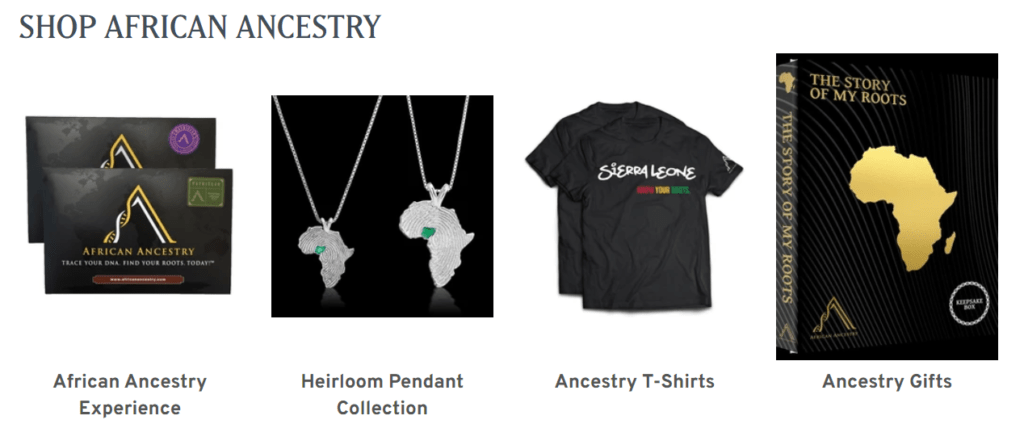
Depending on your purchase, African Ancestry tests analyze your mtDNA, Y-DNA, or autosomal DNA.
Each purchase comes with a test kit containing a swab to collect a DNA sample from your cheek.
At the lab, geneticists analyze your sample and prepare your report.
The report highlights your African ethnicity and region of origin.
African Ancestry allows you to upload raw DNA data files from other genetic testing services.
In these cases, you can submit an Analysis Only request.
While there isn’t a specific list of accepted raw DNA data providers, they mention that they can only analyze raw mtDNA and Y-DNA data.
They cannot analyze autosomal DNA data from another genetic testing service.
African Ancestry does not sell your DNA.
They clearly state that they destroy 100% of your DNA after the analysis.
Your genetic data will not be used for research or commercial purposes, even with your informed consent.
They have not faced any privacy-related controversies over their 21 years in the field.
This reputation is thanks to their iron-clad approach to privacy,
Since the percentage of your DNA halves with each generation, 1% African ancestry means you had an ancestor of African descent 6 or 7 generations ago.
Most people have less than 1% of their roots in Africa, meaning that their most closely related African ancestor lived around 200 years ago.
A 2015 study revealed that, on average, African-American people have 73.2% African heritage, followed by European and Native American ancestry.
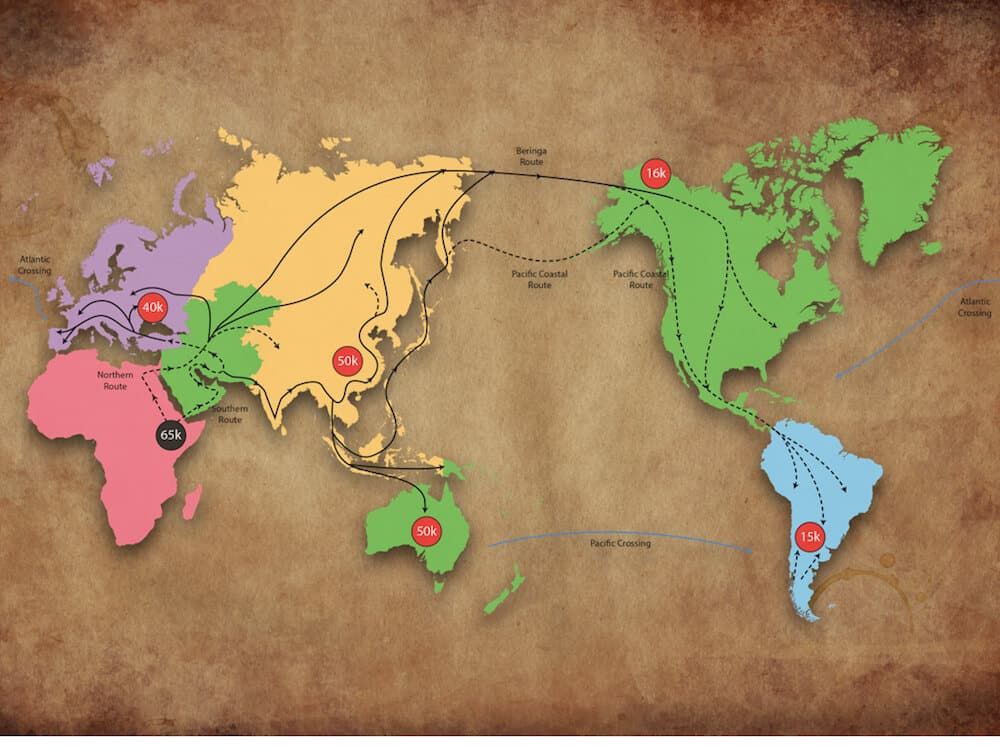
How Far Back Do Ancestry DNA Tests Go?

Jewish DNA Test: Can Genetic Tests Help Identify Jewish Ancestry?

7 Physical Signs Of Viking Ancestry That May Suggest You Have Viking DNA
If you’re wondering whether to get rid of your expired 23andMe kit or just use it and hope it still works, you aren’t alone. Genetic testing is growing in popularity, with millions worldwide purchasing at-home DNA test kits. These kits aren’t cheap, so dealing with an expired kit can be challenging. What can you do with an expired DNA test kit? Will 23andMe provide a free replacement? This article will answer these questions and more.
23andMe is a genetic testing company based in the United States.
It was founded in 2006 and has since gained popularity as a Direct-to-Consumer genetic testing company.
23andMe uses the data that they collect from their users for research.
They used genetic test data to determine which groups of people were more vulnerable to the coronavirus and needed immediate vaccination.
The company provides top-quality genetic DNA testing kits.
23andMe kits do expire.
The date of expiration is mentioned on the side of the collection tube in the 23andMe kit, labeled “collect saliva by.”
This date is related to the shelf life of the stabilizing liquid that protects the DNA sample.
Some customers have purchased kits from unauthorized resellers that expire within a few days.
Thus, buying DNA kits directly from 23andMe’s official website is always advisable.
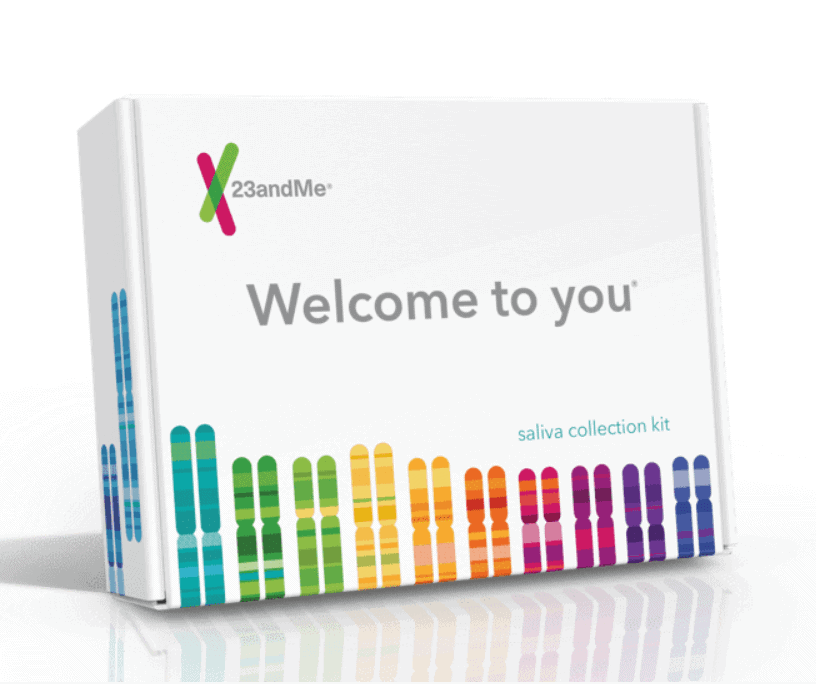
Image source: 23andMe website
Some customers have reported using kits up to two years past their expiry dates.
23andMe mentions that the stabilizing liquid in the kit can last up to 6 months in transit.
DNA Genotek, the company that manufactures these kits, mentions that the stabilizing liquid in the kit can last up to five years.
If in doubt, try using the old kit and see if it’s working.
You could ship it back and request a replacement if it isn't.
A DNA sample in an expired kit might be hard to extract and analyze.
In case of an expired kit, it’s recommended that you contact 23andMe’s customer care service.
The company performs a quality check using basic order information to ensure the kit wasn’t bought from an unauthorized reseller.
Afterward, they typically replace the old equipment free of cost.
However, according to their replacement policy, a new kit can only be shipped to the country from where you placed the original order.
23andMe will only send out one replacement kit.
Afterward, users can request a refund on their order.
While the company may replace the kit, they are more likely to send it to the original shipping address.
Buying your kits from 23andMe’s official website would be ideal.
The liquid is a buffer that mixes with your saliva sample after you collect it.
It stabilizes your sample, preventing bacterial contamination or spoilage before it is analyzed.
Before sample collection, the kit is viable for up to a year.
However, once the kit is used to collect your DNA, the stabilizing fluid will expire within six months.
It’s best to ship the kit back at the earliest.
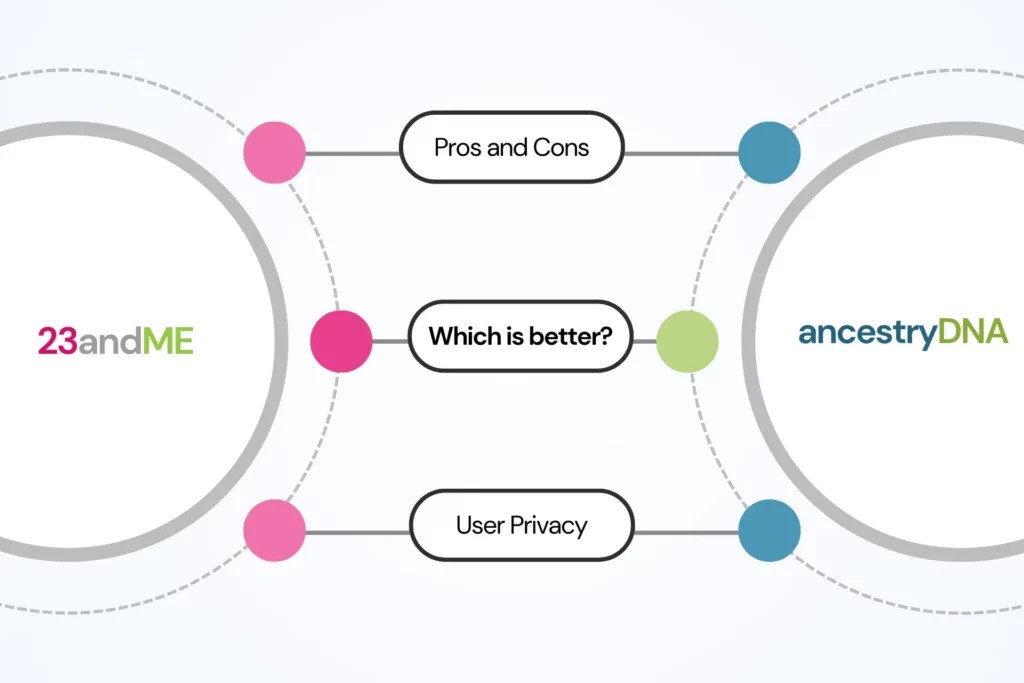
AncestryDNA vs 23andMe: Which Is Better For Raw Data Analysis?

How Long Does 23andMe Take?
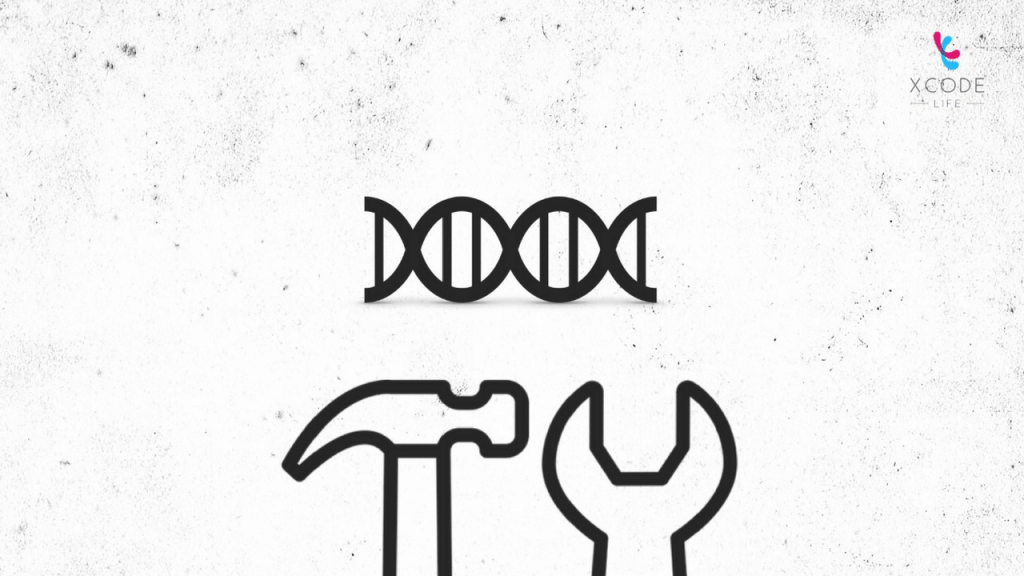
2024 Update: Free Tools For 23andMe, AncestryDNA, FTDNA Raw Data Analysis
https://my.clevelandclinic.org/health/diagnostics/23065-dna-test--genetic-testing
What if addiction is less about the choices we make and more about the genetics we inherit? Research suggests that up to 50% of addiction risk may come from our DNA. Advances in genetic science are revealing how specific genetic variations might influence our susceptibility to addiction. This new understanding prompts us to question how much control we really have over addictive behaviors. Let's explore the connection between genetics and addiction to uncover how our genes might shape our vulnerabilities.
Addiction can be influenced by genetics, with some people inheriting a predisposition to substance use disorders (SUDs).
Substances like alcohol, tobacco, and drugs are acted upon by certain genes which influence the following:
Some people may have certain genes that make them enjoy the drugs more than normal.
The genes may trigger the release of certain hormones that induce pleasure response upon substance usage.
Thus, they may make a person more prone to addiction.
However, it is important to note that genetics by itself cannot cause addiction.
It works alongside other factors to determine whether someone develops addictive behaviors.
Various genetic factors influence how the brain processes pleasure, stress, and reward.
Some of these increase susceptibility to addictive behaviors, particularly through their impact on dopamine and reward pathways.
Some genes linked to addiction include:
Drug addiction can have a hereditary component, meaning that if you have a family history of addiction, you may be more likely to face similar challenges.
Heredity plays a crucial role in addiction, with genetic factors contributing about 50% to the likelihood of developing SUDs.
Advances in genetic research, particularly through genome-wide association studies (GWAS), reveal that many small genetic variations influence SUDs.
These variations across the genome can increase addiction risk.
Findings have pinpointed specific genes related to alcohol metabolism, such as ADH1B and ALDH2, and nicotine use, such as CHRNA5-CHRNA3-CHRNB4.
These discoveries highlight how genetic predispositions can increase vulnerability to addiction, though they do not guarantee it.
A combination of genetic and environmental factors conditions addiction.
Genetics may predispose individuals to addiction, but environmental influences like stress, trauma, and peer pressure are equally important in shaping addiction risk.
However, having a supportive environment and developing healthy habits can help prevent addiction, even for those with a genetic risk.
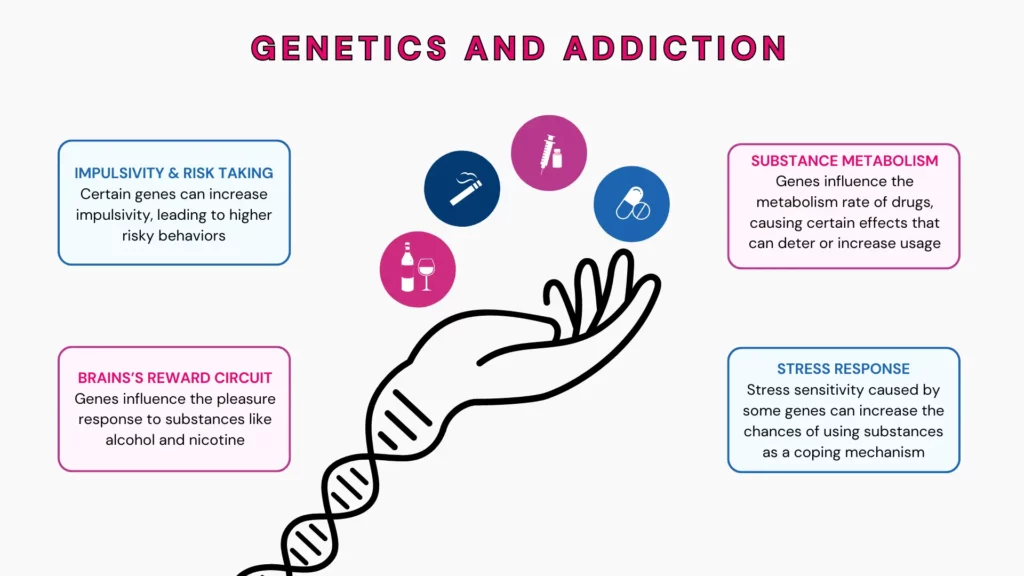
There isn't a single "addiction gene." Instead, a combination of genetic variants may increase a person's risk of developing addictive behaviors.
These genes can influence the brain's reward system, particularly through dopamine.
Some individuals may inherit gene variants that heighten their susceptibility to addictive behaviors, making it harder to regulate impulses.
Genetic testing can reveal details about a person's genes, including variations that might increase their risk of addiction.
These tests can identify specific genetic markers linked to addiction, helping individuals understand their potential vulnerability.
As research progresses, genetic testing is expected to become more accurate in identifying addiction risks. For now, the information from these tests allows people to assess their risk more clearly.
This understanding helps them make better lifestyle choices, seek support if needed, and take steps to reduce their risk.
Efforts like the National Institutes of Health's (NIH) Big Data to Knowledge (BD2K) program are working to improve how genetic data is used and shared.
This research aims to refine genetic testing and develop personalized treatments based on genetic profiles.
Additionally, pharmacogenetics is an emerging field that customizes medications based on an individual's genetics, potentially improving addiction treatment.
Research indicates that approximately 40% to 70% of an individual's susceptibility to SUD can be due to genetic factors, particularly when there is a family history of addiction. Specific genes can influence how the brain's reward system responds to substances, increasing the likelihood of developing dependence. People with a family history of alcohol abuse are up to 4 times more likely to develop problems with alcohol.
While genetics influence addiction risk, environmental factors, such as exposure to drugs at an early age and experiences of trauma or stress, also significantly contribute to an individual's risk. Additionally, mental health issues like anxiety or depression can lead some individuals to self-medicate with substances, increasing their susceptibility to addiction. Ultimately, the interplay between these biological and environmental influences shapes each person's unique vulnerability to developing substance use disorders.
Dopamine addiction appears as follows:
Even with a genetic predisposition, you can manage addiction by taking proactive steps and seeking personalized support.
Recognizing your triggers and developing strategies to handle them are crucial to lowering your risk.
Several ways to prevent and manage addiction include:
Signs of a genetic predisposition to addiction include:

Gambling Addiction Likely In The Genes, Study Says

How Genes Influence Impulsivity And Risk-taking Behavior

The Genetics Of Alcohol Dependence
https://health.clevelandclinic.org/is-addiction-genetic
https://americanaddictioncenters.org/rehab-guide/addiction-genetic
https://www.ncbi.nlm.nih.gov/pmc/articles/PMC8477224
https://learn.genetics.utah.edu/content/addiction/genes
https://nida.nih.gov/publications/drugfacts/understanding-drug-use-addiction
https://www.verywellmind.com/can-you-get-addicted-to-dopamine-5207433
Dimples, particularly those that emerge when smiling, hold a unique place in human aesthetics and cultural symbolism. Found in a significant portion of the world's population, the genetic foundations of dimples still prompt curiosity and research. This article examines what gene causes these dimples, unraveling the mystery behind one of the most sought-after physical features.
Dimples are dips or small indentations that appear on the skin.
Humans can develop dimples in different body parts, like the cheeks, chin, or lower back. These are harmless indentations that are primarily physical.
Dimples, when they form on other parts of the body like the natal cleft, nose, limbs, or scalp, could be associated with certain medical conditions and must be diagnosed by healthcare providers.
There are two common types of cheek dimples - unilateral and bilateral.
Unilateral dimples occur on one side of the cheek, while bilateral dimples form on both cheeks.
A 2018 study analyzed the type of cheek dimples and concluded that 55.6% of the population had bilateral dimples.
In comparison, only 44.4% of the population had unilateral dimples.
Dimples are formed due to a slight change in the facial muscle bundle called zygomaticus major.
The zygomaticus major starts at the tip of the cheekbone and goes down to the corners of the mouth.
These muscles pull the corners of the mouth upwards when people smile.
Usually, the zygomaticus major is usually a single bundle of muscle on either cheek.
In some people, the muscle divides into two bundles - one half from the cheekbone to the middle of the cheek and the other half from the midpoint to the corner of the mouth.
When the skin moves over this split while smiling, a slight indentation appears, which is called a dimple.
Studies report that the global prevalence of genetically inherited cheek dimples is about 22.7%. In the American population, the number is higher, at 34%.
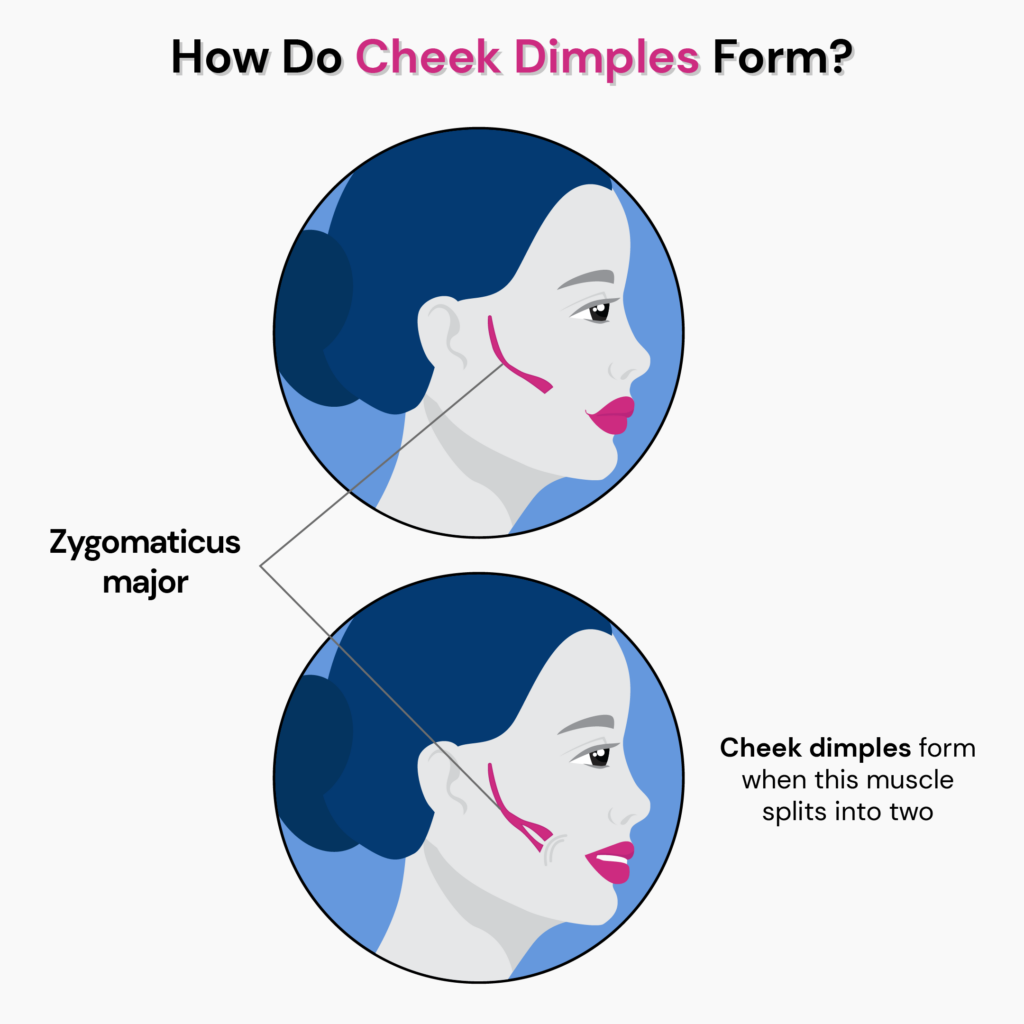
Dimples, particularly those that appear when smiling, are primarily influenced by genetic factors.
Very little research has actually been done on the specific genes responsible for cheek dimples.
These genes may be associated with variations in the zygomaticus major muscle.
Did you know that up to 34% of Americans, 27.4% of Asians, and 12.3% of Europeans are genetically inclined to develop dimples?
According to experts, specific gene changes could be why some people have two bundles of the zygomaticus major while others don’t.
These gene changes could be passed on in the family, making cheek dimples a heritable trait.
Did you know?
While we know that our DNA governs observable traits like eye color, height, and even dimples, not many of us are aware that it even influences health predispositions, altering our risk for many chronic conditions like diabetes and heart disease. Xcode Life allows you to upload your existing DNA data from ancestry tests to learn 1,500+ things about your health. Learn more.
Unless born with dimples, you may not be able to create the indentation naturally.
Some people may have excess fat on the cheeks, leading to the temporary formation of dimples. These dimples disappear when they lose the fat, though.
Dimpleplasty is a technique performed by a trained surgeon to create dimples on the skin.
Here, the surgeon marks where the dimple is needed and makes a small hole in the skin to remove muscles and fat underneath.
Now, the area is sutured using a sling. This process attaches the skin to the muscles to create the indentation.
It may not be possible to get rid of dimples naturally.
Using fillers like Botox on the area may loosen up the muscles and bring down the prominence of the dimple.
This procedure is only temporary and may need to be repeated every 2-3 months.
Dimples occur when the zygomaticus major muscle splits into two bundles, creating an indentation when people smile.
Dimples are genetically inherited. However, the exact genes that lead to the formation of dimples haven’t been identified yet.
Dimples on the cheeks, chin, or lower back are often harmless, while those in areas like the nose, limbs, or scalp could be due to medical reasons and must be checked by an expert.

Are Stretch Marks Genetic?

Do Eggs Really Cause Acne? Here’s What Science Says

Is Dandruff Genetic? Understanding The Roots
https://pubmed.ncbi.nlm.nih.gov/30807476/
https://pubmed.ncbi.nlm.nih.gov/24738724/
https://www.ncbi.nlm.nih.gov/pmc/articles/PMC5955629/
A revolutionary new health drink, or just another sugary health risk? Vitamin water is a new beverage that claims to be jam-packed with electrolytes, minerals, and vitamins. However, its actual impact on your health goes beyond the nutritional label on the bottle. This post explores expert opinions, studying this popular beverage's potential benefits and downsides that you might not expect.
Vitamin water is a beverage made of water enriched with vitamins and minerals.
It may also be infused with some electrolytes.
Vitamin water comes in many flavors and is sweetened with sugar or sugar substitutes.
The formulation of vitamin water varies from brand to brand.
Vitamin water contains:
Not all brands or flavors necessarily contain all these ingredients.
The main difference between the normal and the Zero variants of vitamin water is that the latter has no added sugar.
The Zero variant is sweetened with artificial sweeteners like erythritol and stevia.
So, on average, the normal variant has 100 calories per bottle, while the Zero variant contains 0 calories.
In short, no. Vitamin water is not the best source of your daily vitamins and minerals. Its high sugar content and flavoring agents can also negatively impact your health.
Let’s break down the ingredients and look for the potential benefits of consuming vitamin water.
Coca-Cola put vitamin water on the map.
They offer it in normal and Zero variants.
The normal version contains 26 grams of sugar per bottle.
This is nearly half the recommended daily sugar intake, which is very unhealthy.
The Zero version has no added sugar and is thus a calorie-free drink.
While this is a healthier alternative, it may not be the best choice. We’ll get to the why of it shortly.
| Flavor | % RDA of Vitamins and Minerals |
| Açai Blueberry Pomegranate | Vitamin C: 50% Vitamin E: 100% Niacin (B3): 25% Pantothenic Acid (B5): 25% Vitamin B6: 20% Vitamin B12: - |
| Tropical Mango | Vitamin C: 100% Vitamin E: 100% Niacin (B3): 25% Pantothenic Acid (B5): 25% Vitamin B6: 20% Vitamin B12: - |
| Power-C Dragonfruit | Vitamin C: 200% Zinc: 25% Niacin (B3): 25% Pantothenic Acid (B5): - Vitamin B6: 20% Vitamin B12: - |
| Focus Kiwi-Strawberry | Vitamin A: 10% Vitamin C: 100% Niacin (B3): 25% Pantothenic Acid (B5): 300% Vitamin B6: 300% Vitamin B12: 300% |
| Essential Orange | Vitamin C: 250% Zinc: 25% Niacin (B3): 25% Pantothenic Acid (B5): - Vitamin B6: 20% Vitamin B12: - |
| Energy Tropical Citrus | Niacin (B3): 100% Pantothenic Acid (B5): - Vitamin B6: - Vitamin B12: - |
| Multi-V Lemonade | Vitamin A: 10% Vitamin C: 100% Calcium: - Magnesium: - Zinc: - |
Please note:
The sugar content of regular vitamin water negates any health benefits it may offer.
The Zero version may offer some potential benefits.
The vitamins and minerals in vitamin water may offer some nutritional benefits upon consumption.
Most of it might not be absorbed, but whatever remains could help.
People may be more inclined to consume vitamin water due to their attractive flavors.
While it does hydrate sufficiently, plain water is still the best way to hydrate.
Since vitamin water contains electrolytes like sodium and potassium, it may aid in post-workout recovery.
Vitamin water is sweetened with sucrose and fructose in the US.
Fructose is considered the most harmful component of added sugar.
The fructose content in vitamin water is nearly as much as that in normal Coca-Cola.
Weight loss diets are not just about staying away from high-calorie foods but also saying no to beverages filled with sugar.
Sugar-filled beverages do not even offer the benefits of solid food, like satiety or energy sources.
So they are even worse than sweet-rich foods.
Further, studies suggest that sugar-sweetened beverages are one of the leading causes of obesity.
Typically, excess vitamins and minerals are excreted via urine.
But if too much is consumed, it can become toxic to the body.
If vitamin water is your only source of vitamins, it might be safe.
You probably shouldn’t consume too much vitamin water along with a diet that contains vitamins.
The vitamins could accumulate and cause some harm to your body.
Expert Opinions
Research Findings
It is better to consume vitamin water occasionally rather than every day. Even the zero version may not suit everyone since the sugar alcohol in sweeteners can cause stomach disturbance in some.
Vitamin water can benefit stomach health through hydration and electrolyte replenishment. However, its high sugar content and potential for artificial additives may cause gastrointestinal discomfort in some individuals if consumed excessively. For optimal digestive health, plain water remains the best choice, and vitamin water can be consumed in moderation alongside a balanced diet rich in whole foods.
No solid evidence suggests that vitamin water is healthier than tap water. There are also not enough studies to investigate the potential benefits that vitamin water may offer.
The average recommended water intake is 3 liters. To replace water and compensate for hydration, one would need to drink ~5 bottles of Coca-Cola’s vitamin water. This can cause various problems:
Drinking vitamin water can lead to several side effects, primarily due to its high sugar content and potential for excessive vitamin intake.
Many varieties of vitamin water contain significant amounts of added sugars—often comparable to soft drinks—which can contribute to weight gain, obesity, type 2 diabetes, and other metabolic issues.
Additionally, consuming too many vitamins, particularly fat-soluble ones like A and E, can result in toxicity and adverse health effects.
Artificial sweeteners used in sugar-free versions may also cause gastrointestinal discomfort and cravings for more sugar.
Overall, while vitamin water can provide hydration and some nutrients, it should be consumed in moderation to avoid these potential side effects.
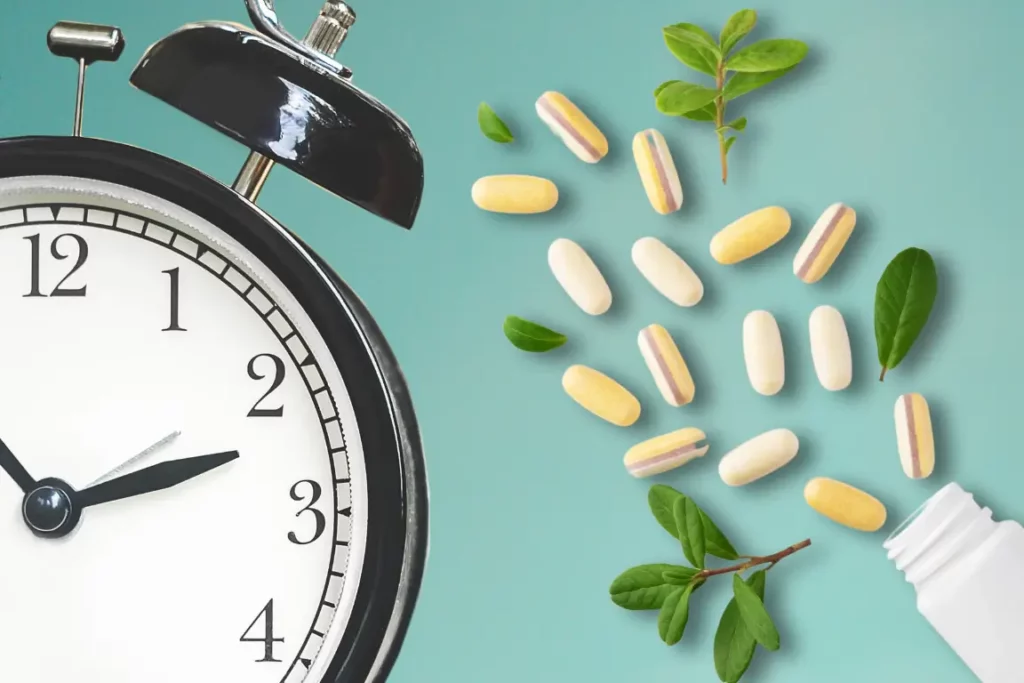
How Long Does It Take For Vitamins To Work?

The Link Between Vitamin D And Raynaud's Disease

Can Vitamin D And B12 Deficiency Occur Together?
https://www.healthline.com/nutrition/5-reasons-why-vitaminwater-is-a-bad-idea
https://cdnsciencepub.com/doi/10.1139/apnm-2014-0252
If you’ve ever wondered how people who eat healthy struggle to lose weight but people with the most unhealthy diets maintain a healthy weight, you’re in the right place. A complex interplay of several environmental and genetic factors determines your body weight. Environments may change, but your genetic makeup is unique to you. Getting a genetic test for weight loss is a great way to help you understand your health better, allowing you to make the right dietary choices.
For a long time, we’ve assumed that weight gain and loss depend almost entirely on our lifestyle.
Eat unhealthy foods and put on weight, eat healthier and watch the scale go down.
It may not be as simple as that anymore.
Now, researchers study the genetics of weight in greater detail.
A study surveyed the genetic background of patients who had undergone weight loss procedures.
The study revealed that genetics played a role in determining the procedure's long-term effectiveness.
The authors also suggested that genetic screening of people with obesity can help recommend a personalized and cost-effective treatment option that would benefit the patient in the long term.
Suitable lifestyle modifications can help combat weight fluctuations.
Regular exercise and a refined diet have a significant impact on body weight.
In addition, habits like meditation to manage stress and a good sleep schedule can further help with weight loss.
Interestingly, how you respond to these healthy habits is influenced by your genes.
For example, dieting and a new sleep schedule work best for person A, while person B benefits more from regular exercise and meditation.
Your genetic makeup can determine which routine would impact your health more strongly.
Thus, getting a genetic test for weight loss is the best way to kickstart your wellness journey.
The short answer is yes.
However, no single “weight loss” gene directly controls the trait.
Your weight also indirectly depends on how you process food, adapt to exercise, handle stress, and more.
Your genetic makeup can answer all these questions:
Your genes aren’t entirely responsible for your body weight.
Factors from your environment and lifestyle contribute to weight gain, too.
Some of these non-genetic factors include:
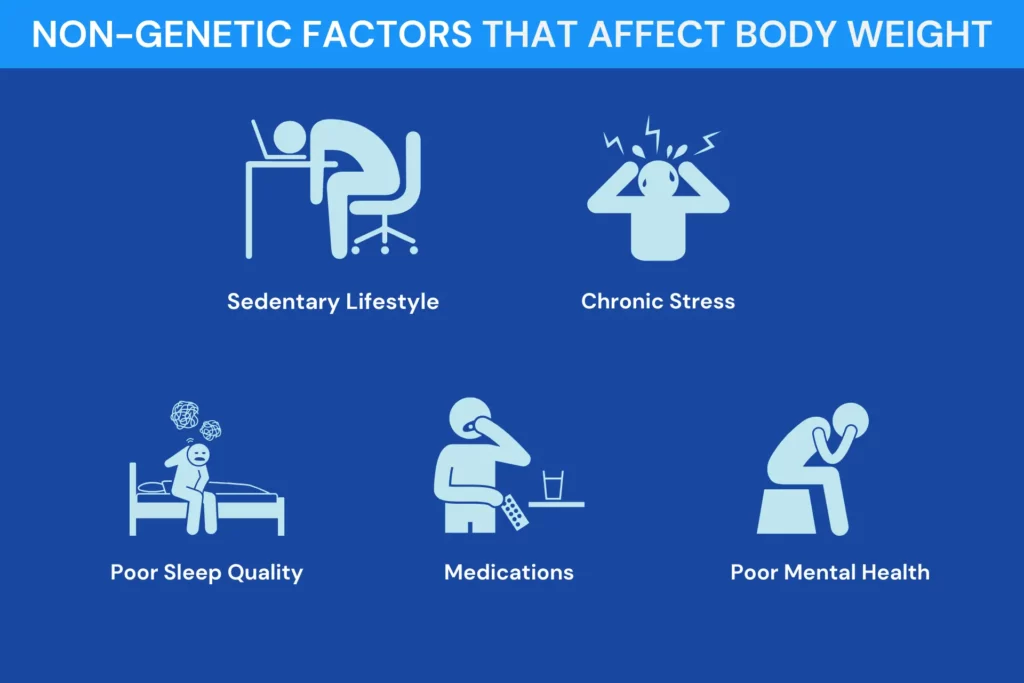
Genetic testing for weight loss can help:
While lifestyle-related traits are easily noticeable, genetic traits aren’t immediately apparent.
For instance, you could trace a spike in weight back to a lack of exercise or a snacking spree in the recent past.
However, if you aren’t seeing enough results from your workout routine, you won’t be able to isolate the culprit genes.
That’s where genetic testing comes in.
Genetic testing can help you optimize your lifestyle, making your current diet and exercise routine more effective.
Healthy habits help, and genetic testing can augment them further.
Genetic testing for weight loss includes:
Ordering a DNA sample kit can cost up to a few hundred dollars.
Xcode Life offers a detailed, user-friendly genetic fitness test for just $30.
Some companies charge up to $200 for their weight loss-based panels.
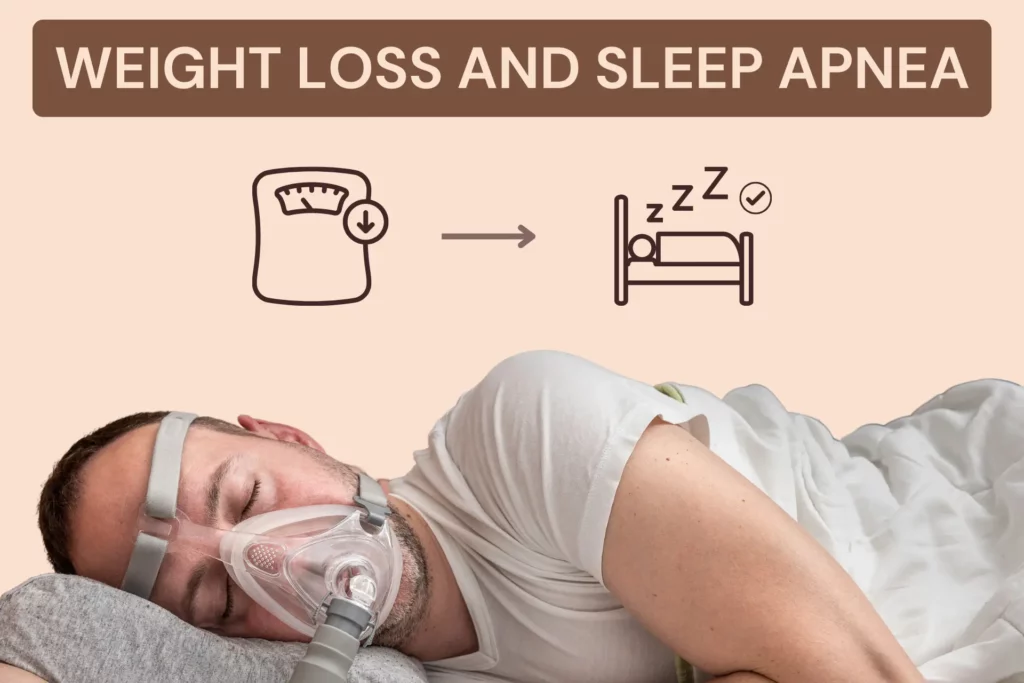
Could Weight Loss Be The Most Effective Treatment For Sleep Apnea?

Jewish DNA Test: Can Genetic Tests Help Identify Jewish Ancestry?

Common And Rare Side Effects Of Semaglutide For Weight Loss
https://www.healthline.com/nutrition/why-sitting-is-bad-for-you
https://www.ncbi.nlm.nih.gov/pmc/articles/PMC9362746
https://www.webmd.com/sleep-disorders/features/lack-of-sleep-weight-gain
https://www.ncbi.nlm.nih.gov/books/NBK537590
https://www.medicalnewstoday.com/articles/depression-weight-gain